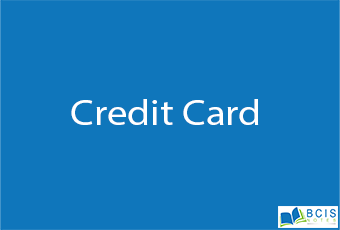
Credit Card
A credit card is a thin rectangular piece of plastic or metal issued by a bank or financial services company, that allows cardholders to borrow funds with which to pay for goods and services with merchants that accept cards for payment. Credit cards impose the condition that cardholders pay back the borrowed money, plus any applicable interest, as well as any additional agreed-upon charges, either in full by the billing date or over time.
Issuers customarily pre-set borrowing limits, based on an individual’s credit rating. A vast majority of businesses let the customer make purchases with credit cards, which remain one of today’s most popular payment methodologies for buying consumer goods and services.
How does credit card processing work?
First, a customer presents their credit card information for payment. In-store, consumers swipe magnetic stripe cards, dip EMV chip cards, tap contactless cards, and use digital wallets like Apple Pay mobile payments solution with their smartphones. Online, consumers present credit and debit cards through websites and apps via payment gateways. For phone orders, a virtual terminal offers secure card processing with a personal computer.
The payment information is then sent to the processor, who communicates with the customer’s bank via the appropriate card networks (such as Visa or Mastercard). The customer’s bank approves or denies the transaction. Approval is dependent on detailed verification including card number validity, sufficient available funds, and other factors.
That approval is sent back through to your payment processor and then finally back to your terminal or credit card reader. Approved transactions are batched for settlement typically at the end of each business day. Your customers’ accounts are charged for the transactions, with deposits then made into your merchant bank account.
If you liked our content Credit Card, then you may also like E-cash

Leave a Reply